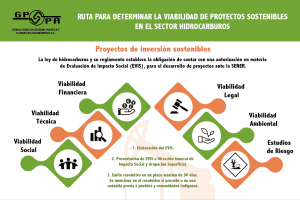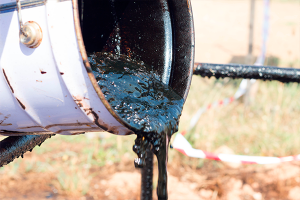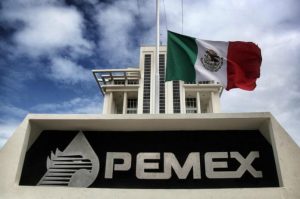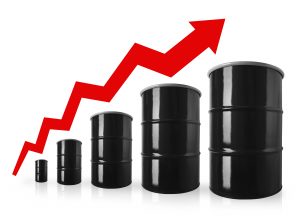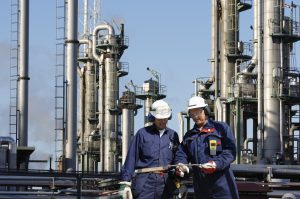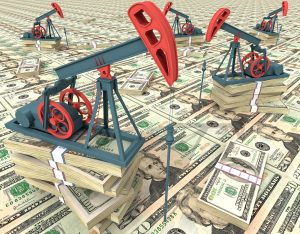La “Reforma Energética”de 2013 significó una apertura al sector privadoen esferas antes reservadas exclusivamente a órganos gubernamentales, tales como los sectores de infraestructura, hidrocarburos y energía; propiciando un modelo estratégico en el que los inversionistas pueden ser participantes en el desarrollo de proyectos de estos rubros como Empresas Productivas del Estado (EPE).
Estas EPE cuentan con personalidad jurídica y patrimonio propios, así como cierta autonomía que las empresas paraestatales y empresas públicas carecen; otorgando la posibilidad de abrir los sectores señalados con anterioridad a un panorama competitivo en el mercado mexicano. Con este nuevo paradigma, las prospectivas de los sectores eléctrico, de hidrocarburos y de energías renovables se amplían, como lo demuestran las siguientes cifras dentro de los documentos emitidos por la Secretaría de Energía (Prospectivas 2017-2031):
- La producción estimada de aceite (miles de barriles diarios) aumenta de 1,964 a 3,252 al año 2031.
- En el 2016, la capacidad instalada del Sistema Eléctrico Nacional se ubicó en 73,510 MW; pronosticando que para el 2031, esta cifra aumente hasta 113,269 MW.
- En el 2016, existía un balance en el que la Energía Convencional comprendía un 71.2% y la Energía Limpia un 28.8% de la capacidad instalada por tipo de tecnología; previendo para el 2031 que la Energía Convencional ocupe un 50.4% y la Energía Limpia un 49.6%.
- El incremento esperado de procesamiento de crudo es de 79.6% para el periodo 2017-2031.
Estos son ejemplos de las altas expectativas que se tienen del crecimiento en cuanto a producción, desarrollo y consumo de Energía e Hidrocarburos en poco más de una década. Con lo anterior en consideración, se debe prever que Empresas Productivas del Estado podrán realizar las siguientes actividades encaminadas a alcanzar estos Pronósticos:
- Sector Hidrocarburos:Exploración superficial marítima y sísmica terrestre; Exploración y Extracción de hidrocarburos; Tratamiento y Refinación de Petróleo; Transporte de Hidrocarburos, Petrolíferos y Petroquímicos; Almacenamiento de Hidrocarburos, Petrolíferos y Petroquímicos; Distribución de Gas Natural y Petrolíferos; Compresión, licuefacción, descompresión y regasificación de Gas Natural; y Expendio al público de Gas Natural y Petrolíferos.
- Sector Electricidad:Generación de Energía Eléctrica y Servicio público de transmisión y distribución de energía eléctrica.
En este tenor, es importante mencionar que la realización de todas estas actividades requerirán de la presentación de un estudio técnico denominado Evaluación de Impacto Social (EVIS), el cual contiene la identificación de las comunidades y pueblos ubicados en el área de influencia de un proyecto, así como la identificación, caracterización, predicción y valoración de las consecuencias a la población que podrían derivarse del mismo y las medidas de mitigación y planes de gestión social correspondientes.
En congruencia con lo establecido en la Ley de la Industria Eléctrica (LIE) y la Ley de Hidrocarburos, el 01 de junio de 2018, se publicó en el Diario Oficial de la Federación el Acuerdo por el que se emiten las Disposiciones Administrativas de Carácter General sobre la Evaluación de Impacto Social en el Sector Energético(el “Acuerdo”).
Dentro de este Acuerdo, se establece la metodología y criterios necesarios para la presentación del EVIS, un avance para la calidad de estos estudios por motivos de que la regulación y los lineamientos necesarios para la su elaboración eran escasos y no existían lineamientos definidos que pudieran usarse como base para las Empresas Productivas del Estado.
Finalmente, no se debe perder de vista la estrecha relación existente entre la Evaluación de Impacto Social y la Evaluación de Impacto Ambiental (EIA), en el entendido que la primera es un prerrequisito para la autorización de la EIA. Es requisito para los regulados contar en forma previa con las autorizaciones de ambos estudios para el desarrollo de los proyectos encaminados a los sectores de Energía e Hidrocarburos. En la siguiente figura se muestra el proceso de elaboración y evaluación de las EVIS.
![]()
Con más de 20 años de experiencia, cobertura internacional y fuerte compromiso con la sustentabilidad, la innovación y la calidad de nuestros servicios en el sector hidrocarburos, energía, turismo, desarrollo urbano, infraestructura, medio ambiente y minería; hemos conformado un catálogo de productos y servicios con valor agregado que resuelva en forma sistémica las necesidades de nuestros clientes y grupos de interés, en materia de planeación, manejo, gestión ambiental y desarrollo sostenible, incluyendo la elaboración de EVIS y la EIA. Para ello, ponemos a su disposición la red más amplia y especializada de expertos a nivel nacional e internacional, ofreciendo una plataforma integral en la materia, trazando las alternativas y estrategias necesarias para el correcto desarrollo de Proyectos Sustentables en México, entre ellos.
Para mayor información y cualquier duda o necesidad derivada de la información presentada en el presente boletín, estamos a su disposición a través de:
Consultores en Gestión Política y Planificación Ambiental, S.C.
David Zárate Lomelí
Director General
Teléfono: (998) 6 88 08 75
E-mail: [email protected]
www.gppa.com.mx
Energy Insurance Broker, Agente de Seguros y de Fianzas, S.A.P.I. de C.V.
Graciela Álvarez Hoth
CEO NRGI Broker
Teléfono: (55) 9177 2100
E-mail: [email protected]
www.nrgibroker.com
